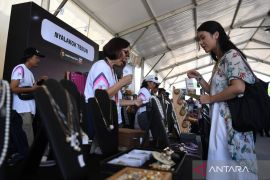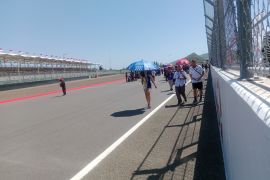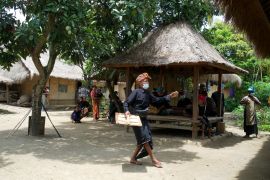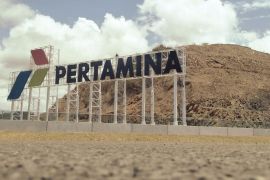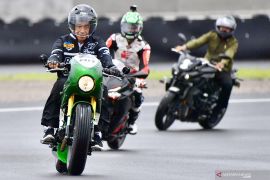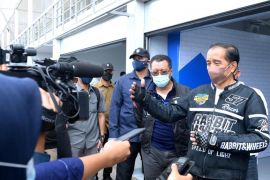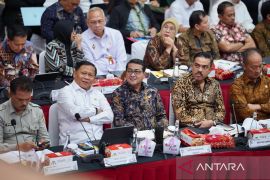In mid-June 2021, ANTARA took a one-day WeTravel tour, as part of a media trip organized by online travel agent tiket.com. Starting out in the morning from Mataram City, we followed an empty highway to the pottery village, a weaving or tenun center, traditional Sasak people's homes, the Kuta Mandalika beach, caves with beautiful and dramatic sun rays, and ended the trip waiting for the sun to set on scenic hills.
Banyumulek Pottery Village
Small knick-knacks made of clay, ranging from chili saucers, ashtrays, to large vases, are available at the Banyumulek Pottery Village, and will leave you spoilt for choice.
Usually, visitors can see the process of making pottery. However, the lack of tourists due to the COVID-19 pandemic has also affected the atmosphere here and emptied the pottery sales area. Therefore, at the time of our visit, there were no pottery-making demonstrations in the village.
If you come to Lombok, take a look at a special kind of pottery made here called the thief's jug. The jug has a unique shape: It does not have a mouth at the top to pour water into, so all the water has to be filled by turning the jug upside down; however, once it is turned the right side up, none of the water spills out.
We were told that the inner cavity of the jug is designed like a cone so that the incoming water does not seep out through the bottom. The water stored in the jug is also cooler and feels fresh when we take a sip.
Sukarara Village
Woven cloth from Sukarara Village is famous even on foreign shores. After all, this village in Jonggat sub-district, Central Lombok, is a hub for traditional woven textile, or songket .
At the weaving sales center, visitors can observe the weaving process practiced by local women. Our guide told us that the women here are taught to weave since childhood because the villagers believe it’s a skill girls must acquire in order to get married. Good weaving is considered a requirement that must be met if local girls want to get a husband.
In Sukarara, you can buy handmade scarves, caps, tablecloths, and large woven fabrics at a price ranging from tens of thousands to millions of rupiah.
After sightseeing and shopping, take a short trip to see the traditional houses of the Sasak tribe nearby, or wear traditional Lombok clothing and take pictures in front of a traditional house with walls made of woven bamboo and a roof of dry reeds.
Before the pandemic, this village was visited by many groups of tourists. But now, the parking lot, which was earlier almost always full of cars, wears a deserted look. According to local officials, the number of visitors coming here to watch the weaving process has fallen drastically due to the pandemic.
Online Shift
The COVID-19 pandemic, which hit Indonesia in March last year has hit, has hit the tourism sector hard, with foreign tourist arrivals diving by up to 75 percent, according to data from the Central Statistics Agency.
To restore tourism and revive the creative economy sector in Lombok, the government is encouraging the promotion and sale of creative products through online platforms.
"We have to ensure that creative products from Lombok can go global," Minister of Tourism and Creative Economy, Sandiaga Uno, said at the launch of the Karya Kreatif Indonesia (KKI) program, in collaboration with Bank Indonesia, last March.
Cooperation from various parties is needed to develop and advance creative economic actors around the Mandalika area, which is one of the five super-priority destinations in Indonesia, he added.
According to Uno, the key to introducing creative products to the international market is helping creative economy players make the digital switch so they can sell their wares on online platforms. Thus, consumers who are interested in buying these products can shop through digital platforms without having to transact physically, he added.
According to West Nusa Tenggara Governor Zulkieflimansyah, the province, especially Lombok, has great potential and human resource capacity.
Such potential needs to be further developed through the KKI program, which is also related to the Proudly Made in Indonesia national movement, he added.
“Lombok exoticism is not only limited to the beauty of the region, nature, and tantalizing culinary delights that we enjoy together. But the exoticism of Lombok is a symbol of revival, that it turns out that our SMEs are able to create what we have not imagined before," Zulkieflimansyah remarked.
Editor: Fardah Assegaf
Copyright © ANTARA 2021


